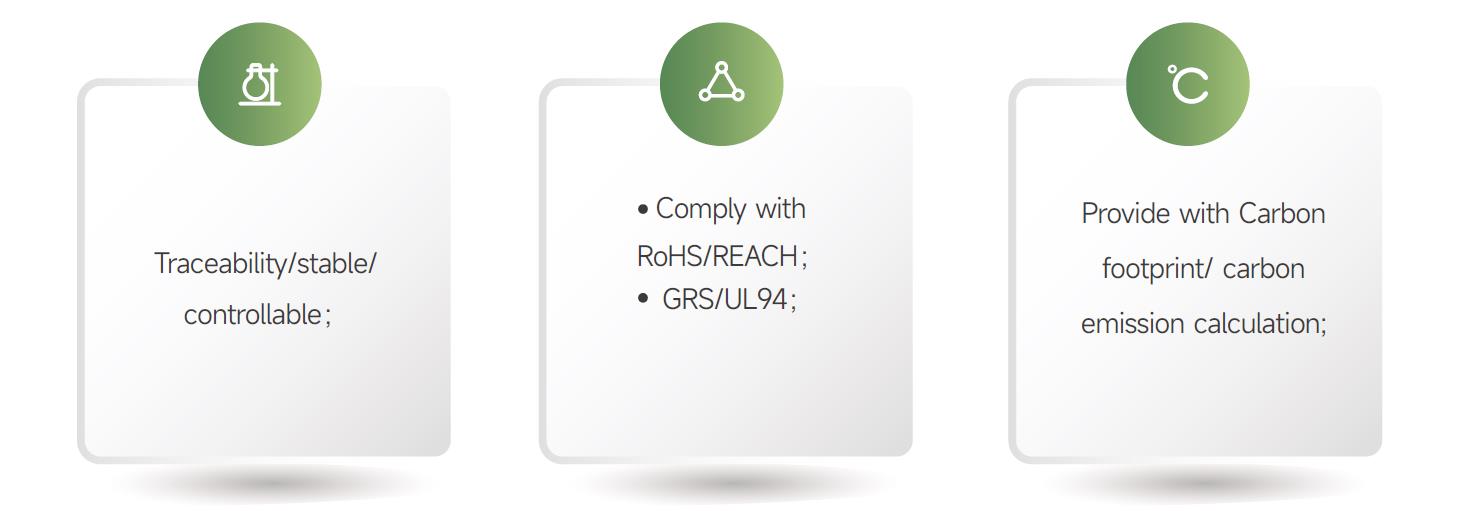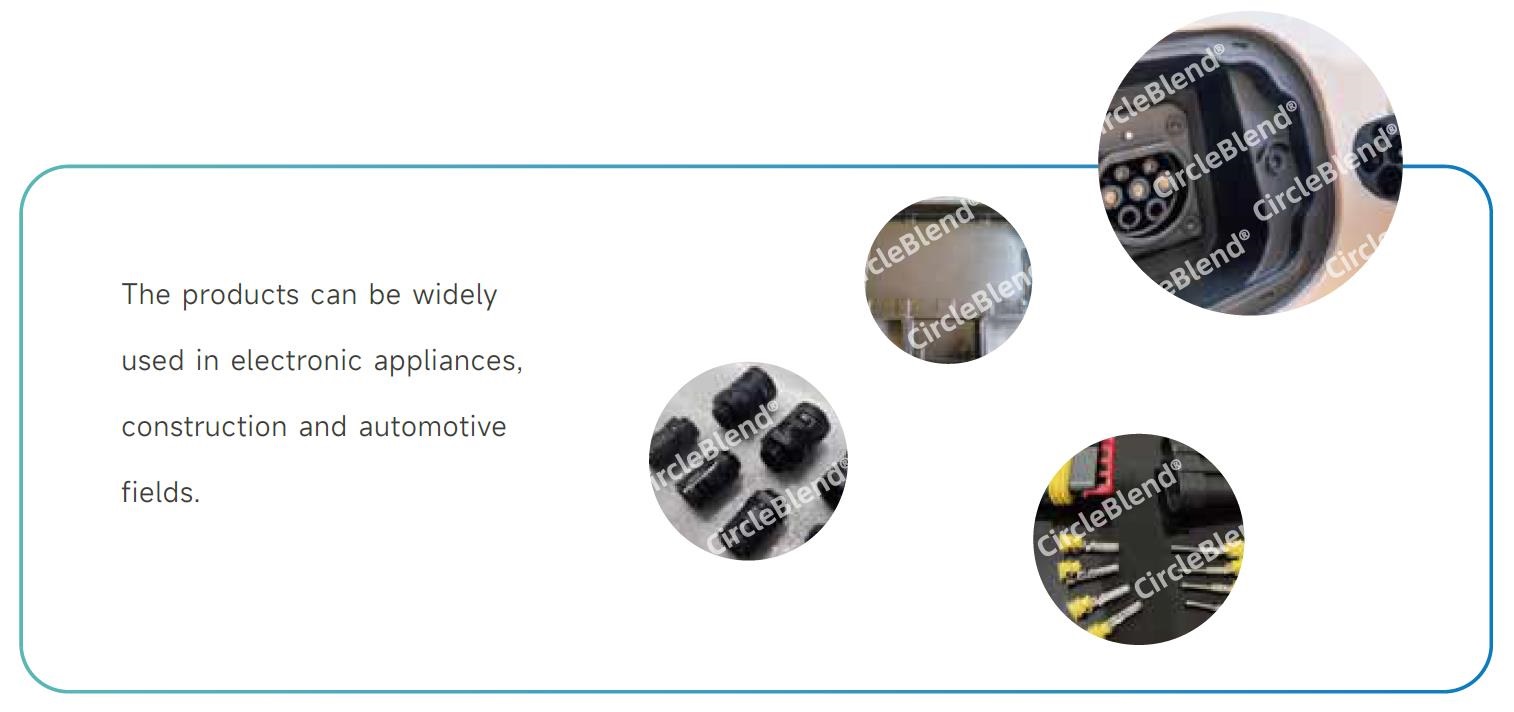
iCircular polyamide compounding is obtained by high-performance or multi-functional modification based on standardized recycled PA pellets (Nairong® rPA6&PA66). At present, this series includes product grades such as glass fiber reinforced PA6&PA66, which can meet the needs of various specific application scenarios.
| Typical Grade | Characteristic | Tensile Strength (MPa) | Notched Impact Strength (KJ/m²) | Bending Modulus (MPa) | HDT (°C) | UL 94 | Appearance | PCR Content (%) | Carbon Footprint (t CO2/t) | Application |
|---|---|---|---|---|---|---|---|---|---|---|
| PA6-G20(GPI01) | 15%GF reinforced | 100 | 7 | 4700 | 125 | HB 0.75mm | Natural and all colors | 80+ | 0.673 | Automotive Shell and Wheel |
| PA6-G30(GPG01) | 30%GF reinforced | 170 | 12 | 8500 | 125 | HB 0.75mm | Natural and all colors | 65+ | 0.588 | Automobile; Furniture; Electrical Equipment |
| PA6-G30(FRG01) | 30%GF reinforced, HFFR | 120 | 9 | 6800 | 122 | VO 0.75mm | Natural and all colors | 60+ | 0.609 | Charging Gun New Energy Vehicle, Intake Valve |
| PA6-G50(GPE01) | 50%GF reinforced | 180 | 15 | 11000 | 118 | HB 0.75mm | Natural and all colors | 45+ | 0.524 | Automobile; Electrical appliances |
| PA6-N00(FRJ01) | HFFR | 70 | 5 | 3000 | 122 | VO 0.8mm | Natural and all colors | 90+ | 0.878 | Low Voltage Electrical |
| PA66-G30(GPG01) | 30% GF, Thermally stable, Resistant to hydrolysis | 280 | 12 | 10000 | 125 | HB 1.5mm | Natural and all colors | 65+ | 0.623 | Automobile; Furniture, Electrical Equipment |
| PA66-G30(FRG01) | 25%GF, HFFR | 170 | 11 | 9000 | 135 | VO 0.35mm | Natural and all colors | 65+ | 0.654 | Automobile; Electrical |
| PA66-N00(FRJ01) | Non-reinforced, HFFR | 80 | 3 | 3000 | 135 | VO 0.75mm | Natural and all colors | 90+ | 0.891 | Electronic; Electrical |
CircleBlend®,rPABlend®,ITEBlend®,AppBlend®,ReAutoBlend®;



We offer a wide variety of materials, including general plastics, engineering plastics, and specialty plastics, covering almost all types of recycled polymers.

With a dedicated R&D team, we continuously innovate and develop high-performance, customized material solutions to meet diverse industry needs.

From research and testing to manufacturing and sales, we provide end-to-end solutions, streamlining the supply chain for our clients.

Our products promote low-carbon, circular economy practices,supporting global sustainability efforts with bio-based and degradable materials.
Sustainable low - carbon functional materials are applied across numerous critical areas. In the energy sector, they are pivotal. For instance, advanced photovoltaic materials with low - carbon manufacturing processes are used to construct more efficient solar panels. These materials enhance the conversion of sunlight into electricity, contributing to the expansion of renewable energy sources and reducing reliance on fossil fuels.
In the textile industry, sustainable low - carbon functional materials are making waves. Bio - based and recycled fibers are being used to create fabrics. These materials not only consume less energy during production but also have a lower environmental impact compared to traditional synthetic fibers. Moreover, some functional textiles made from these materials can regulate body temperature, repel water, or provide UV protection, all while maintaining a low - carbon footprint.
In the textile industry, sustainable low - carbon functional materials are making waves. Bio - based and recycled fibers are being used to create fabrics. These materials not only consume less energy during production but also have a lower environmental impact compared to traditional synthetic fibers. Moreover, some functional textiles made from these materials can regulate body temperature, repel water, or provide UV protection, all while maintaining a low - carbon footprint.


